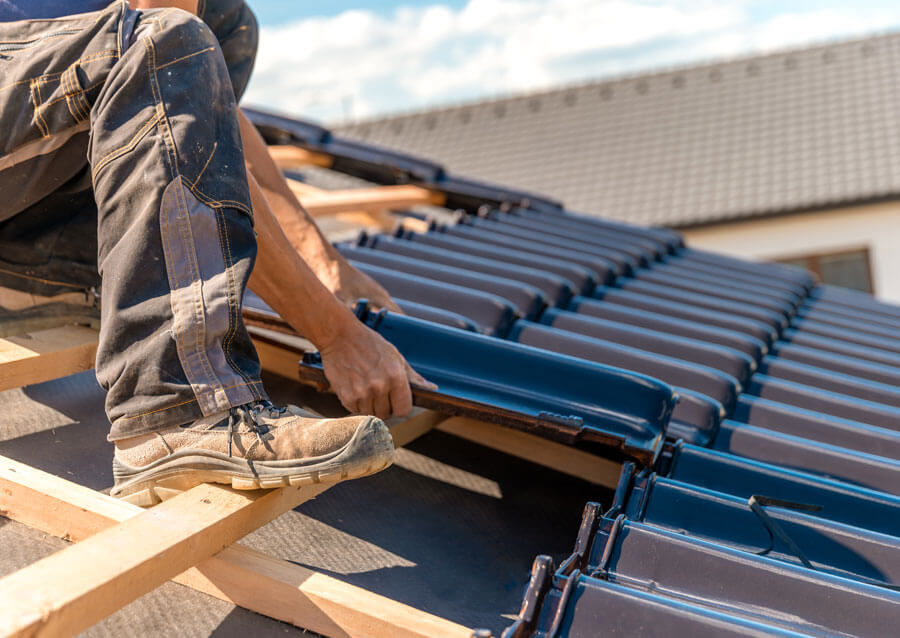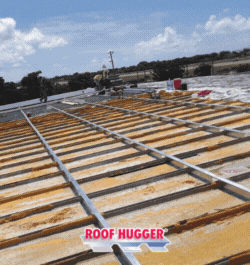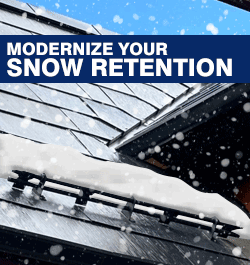Types Of Roofing Insulation
« Back To Metal Roofing TalkTypes Of Roofing Insulation

By protecting the roof from the sun and other weather conditions, you can keep the heat inside. The method keeps the temperature stable and blocks out outside noise. Changes in insulation rules around the world have made it more important for buildings to have high thermal resistance so that less heating and cooling energy is lost. Materials used as insulation should not only be good at keeping heat in, but they should also be strong enough to hold weight. If you choose the right insulation for your roof, it can last for decades, but if you don't, it might not last as long.
Advantages of Roof Insulation
One of the main reasons for looking at insulation again is to save money on energy costs. For a new home or a remodel, choosing the right commercial roof systems is important. Insulation can help your home use less energy and be more comfortable. Additionally, it can eventually pay for itself through energy savings. It has a lot of good points.
- It has excellent thermal efficiency.
- The result is improved mechanical strength.
- It can stand up to the sun's rays.
- Serve as a barrier against air, wind, and water.
- Apply exterior and interior insulation to stop vapor from getting through.
- It reduces your carbon footprint.
- stops molds from growing.
There are several types of roofing insulation, each with its own benefits and drawbacks. Here are some of the most common types:
Fiberglass Insulation: Fiberglass insulation is a popular choice for roofing applications because it is lightweight, easy to install, and relatively inexpensive. It consists of glass fibers that are woven into mats or rolls and then installed between the roof joists. However, fiberglass insulation can be a health hazard if it is not installed properly, as the fibers can cause respiratory issues if they are inhaled.
Cellulose Insulation: Cellulose insulation is made from recycled paper products and is often used as an eco-friendly alternative to fiberglass. It is also a good choice for roofs with irregular shapes or hard-to-reach areas because it can be blown in with a special machine. However, it is more expensive than fiberglass and can be a fire hazard if not treated with a fire-retardant.
Spray Foam Insulation: Spray foam insulation is a type of insulation that is applied in liquid form and then expands to fill in all gaps and cavities. It provides excellent insulation and can help to reduce energy costs, but it is more expensive than other types of insulation and can be difficult to install properly.
Rigid Foam Insulation: Rigid foam insulation is a type of insulation that comes in large, flat panels. It is a good choice for roofs with a flat or low-slope because it can be installed directly on the roof deck. However, it can be expensive and is not as effective as other types of insulation when it comes to filling gaps and cavities.
Reflective Insulation: Reflective insulation consists of a layer of aluminum foil that reflects heat back into the building. It is a good choice for roofs in hot climates because it can help to reduce cooling costs. However, it is less effective in cold climates and does not provide as much insulation as other types of roofing insulation.
Roofing insulation is a crucial component of any roofing system as it helps improve energy efficiency, thermal comfort, and moisture control in your home. It acts as a barrier to prevent heat transfer between the interior and exterior of the house. There are various types of insulation materials available for roofing. you can check our website!
https://www.dmringcontracting.com
Metal Roofers Sarasota is a leading roofing company specializing in metal roof installations and services. With our expertise and commitment to excellence, we provide top-notch metal roofing solutions for residential, commercial, and industrial properties in Sarasota and the surrounding areas. Our skilled team of metal roofing experts is dedicated to delivering superior craftsmanship, exceptional durability, and long-lasting performance. Whether you're looking to upgrade your existing roof or install a new metal roof, Metal Roofers http://www.commercialroofingsarasota.com/ is your trusted partner. Count on us for professional service, attention to detail, and the highest standards of quality in the industry.
Roofers Near Me is a reliable roofing service that provides top-notch roofing insulation solutions. Whether you're looking for traditional insulation materials or more advanced options, their team of skilled roofers can guide you through the different types of roofing insulation available. From spray foam insulation to reflective barriers, Roofers Near Me has the expertise to help you choose the right insulation that suits your needs and budget. With their professional installation and quality craftsmanship, you can ensure that your roof is well-insulated, providing energy efficiency and comfort to your home. Contact Roofers Near Me today for expert advice on roofing insulation options and enjoy the benefits of a well-insulated roof.
Types OfRoofingInsulation
By protecting the roof from the sun and other weather conditions, you can keep the heat inside. The method keeps the temperature stable and blocks out outside noise. Changes in insulation rules around the world have made it more important for buildings to have high thermal resistance so that less heating and cooling energy is lost. Materials used as insulation should not only be good at keeping heat in, but they should also be strong enough to hold weight. If you choose the right insulation for your roof, it can last for decades, but if you don't, it might not last as long.
Advantages of Roof Repair Annandale va
One of the main reasons for looking at insulation again is to save money on energy costs. For a new home or a remodel, choosing the right commerical roof systems is important. Insulation can help your home use less energy and be more comfortable. Additionally, it can eventually pay for itself through energy savings. It has a lot of good points.
- It has excellent thermal efficiency.
- The result is improved mechanical strength.
- It can stand up to the sun's rays.
- Serve as a barrier against air, wind, and water.
- Apply exterior and interior insulation to stop vapor from getting through.
- It reduces your carbon footprint.
- stops molds from growing.
-hbroofers
Hey roofing experts! Seeking advice here. I'm a bit clueless about construction. I'm from Phoenix, AZ, with a 15-year-old two-story tile roof. Had leaks, friend fixed, mentioned bad underlayment. Now considering redoing the whole roof. How do I find a trustworthy company without getting ripped off? My friend recommended Fontana G40 and using new materials. Any tips? Thanks!
-Jeffeshafi
Fontana G40 is a trusted choice for roof redo in Phoenix, AZ. Seek referrals, compare quotes, and trust your instincts. Quality materials and reputable companies matter. Best of luck with your roof project..

















